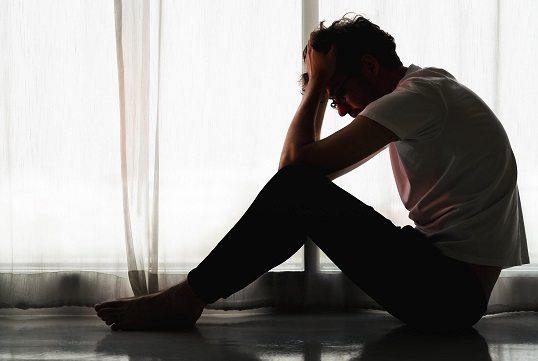Can Depression Affect Your Physical Health?
Depression is a widespread mental health issue affecting people globally. It is marked by persistent feelings of sadness, hopelessness, and a lack of interest in activities.
While its primary impact is on emotional well-being, depression can also significantly affect physical health.
This article delves into the connection between depression and physical health, exploring how depression impacts various aspects of bodily function.
Depression frequently manifests with physical symptoms that manifest in diverse ways throughout the body. Fatigue or low energy levels are among the most prevalent physical indicators of depression.
Individuals might experience constant tiredness, find it hard to initiate or sustain physical activity, and lack motivation. This often leads to a sedentary lifestyle, reduced exercise, and diminished physical fitness.
Additionally, depression can disrupt sleep patterns, leading to insomnia or excessive sleepiness. Insomnia can cause difficulties falling or staying asleep, resulting in sleep deprivation and heightened daytime fatigue.
Excessive sleepiness or hypersomnia can lead to prolonged sleep duration, but individuals may wake up feeling unrefreshed and lacking energy. These sleep disruptions further contribute to physical exhaustion and negatively impact overall physical well-being.
Appetite and eating habits can also be affected by depression. Some individuals may experience decreased appetite, resulting in weight loss and nutritional deficiencies. Conversely, others might resort to emotional eating, leading to weight gain.
These changes in eating behavior can have consequences for overall physical health, including nutritional imbalances and an increased risk of chronic conditions such as obesity, diabetes, and cardiovascular disease.
The connection between depression and physical health is bidirectional. Depression can affect physical health and is also influenced by physical health conditions.
Individuals with chronic medical issues like diabetes, cardiovascular disease, or chronic pain are more prone to developing depression.
The burdens of managing such illnesses can contribute to feelings of distress, hopelessness, and exacerbate depressive symptoms.
The impact of depression on physical health extends beyond fatigue, sleep issues, and appetite changes. Research indicates that depression is linked to increased inflammation in the body.
While inflammation is a natural immune response to injury or infection, chronic inflammation can harm overall health. It is associated with conditions like cardiovascular disease, diabetes, and autoimmune disorders.
Furthermore, depression can weaken the immune system, rendering individuals more susceptible to infections and slower to recover from illnesses.
It can also hinder the body’s healing abilities and adversely affect the outcomes of certain medical treatments or surgeries.
Depression has also been linked to heightened pain sensitivity and an increased perception of physical discomfort.
People with depression might experience more intense and persistent pain, adding to a reduced quality of life and overall physical functioning.
The consequences of depression on physical health can be substantial. It can impair daily activities, reduce productivity, and hinder overall functioning.
The combination of physical symptoms, emotional distress, and decreased physical activity can create a negative cycle that further impacts physical health and well-being.
Addressing the impact of depression on physical health requires a comprehensive approach to treatment.
Psychotherapy, like cognitive-behavioral therapy (CBT) or interpersonal therapy (IPT), can help individuals develop strategies to manage depressive symptoms, enhance coping skills, and improve overall well-being.
Therapy can also address negative thought patterns and emotional distress associated with depression, indirectly benefiting physical health.
In some cases, medication might be prescribed to manage depressive symptoms and support physical health. Antidepressant medications such as selective serotonin reuptake inhibitors (SSRIs) or serotonin-norepinephrine reuptake inhibitors (SNRIs) can help regulate neurotransmitter imbalances, alleviating depressive symptoms and positively impacting physical health.
Alongside therapy and medication, adopting healthy lifestyle habits can bolster physical health in those with depression. Regular exercise has proven effective in reducing depressive symptoms and enhancing overall well-being.
Engaging in physical activity, even in moderation, can elevate mood, boost energy levels, and promote better physical fitness. Choosing an enjoyable and sustainable exercise routine is crucial for long-term adherence.
Maintaining a balanced diet is essential for supporting physical health and managing depression. A diet rich in fruits, vegetables, whole grains, lean proteins, and healthy fats supplies vital nutrients to the body and promotes overall well-being.
Reducing the intake of sugary and processed foods can help regulate energy levels, support optimal physical functioning, and improve mood.
Prioritizing proper sleep hygiene is critical for managing depression and supporting physical health. Creating a sleep-conducive environment, practicing relaxation techniques before bedtime, and establishing a consistent sleep routine can enhance sleep quality and overall physical well-being. Aim for the recommended 7-9 hours of sleep per night to ensure adequate rest and rejuvenation.
Stress management is also pivotal in maintaining physical health amid depression. Engaging in stress-reduction techniques like mindfulness meditation, deep breathing exercises, or enjoyable hobbies can mitigate the impact of stress on the body. Self-care and allocating time for relaxation and stress relief are essential.
Building a robust support network is crucial when addressing depression’s impact on physical health. Seeking support from friends, family, or support groups can provide emotional validation, understanding, and encouragement.
Connecting with others who share similar struggles can be beneficial for managing depression and supporting physical well-being.
Professional help is vital when dealing with depression and its effect on physical health. Consulting healthcare professionals like mental health providers or primary care physicians can aid in assessing depression’s severity and devising a personalized treatment plan.
They can offer guidance on appropriate therapy, medication, and lifestyle adjustments to support both mental and physical well-being.
To conclude, depression significantly affects physical health. The intricate interplay between depression and physical health involves factors like fatigue, sleep disruptions, changes in appetite, inflammation, and compromised immune function.
Addressing this impact necessitates a comprehensive approach encompassing therapy, medication, and lifestyle changes.
By seeking professional assistance, adopting healthy habits, and cultivating a support system, individuals can manage depression and bolster their physical health. Remember, recovery is achievable, and you don’t have to face it alone.

